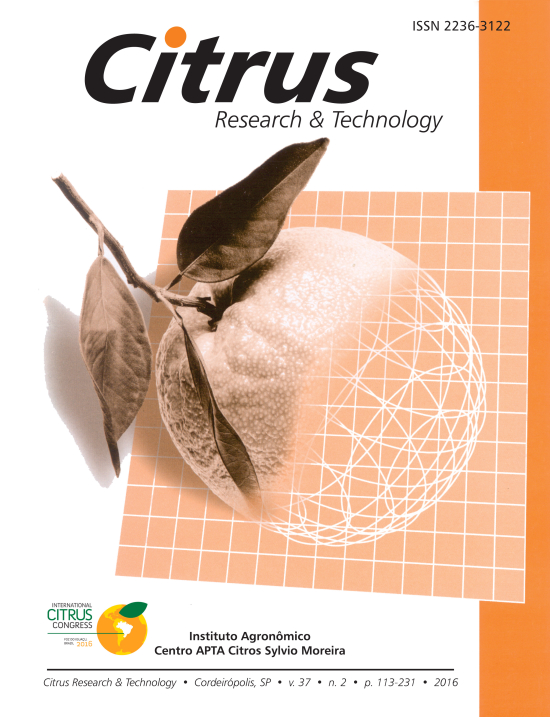Análise da formação dos preços na citricultura paulista
Analysis of the formation of prices in the citrus industry in São Paulo
Adriana Ferreira Silva, Geraldo Sant’Ana de Camargo Barros & Margarete Boteon
Resumo
Os principais agentes da cadeia da laranja no Brasil não operam em igualdade de poder de mercado. Dessa forma, os preços deixam de refletir somente as condições potenciais de oferta e demanda, mas também a estratégia do segmento com maior poder de mercado. O objetivo deste estudo foi analisar a relação entre o preço do suco de laranja estabelecido no mercado externo (nos negócios entre exportadores e engarrafadores nos países de destino) e o preço da laranja recebido pelos produtores no mercado brasileiro. Este estudo abrangeu a análise estatística/econométrica dos preços do suco de diferentes mercados, de forma a identificar a série (ou séries) de preços mais consistente em explicar o processo de formação dos preços aos produtores, nas safras de 1995/96 a 2012/13. Os resultados indicaram que os preços da laranja são vinculados estruturalmente aos do suco no atacado internacional, independente da fonte considerada, e essa relação pode ser usada em um novo rearranjo negocial entre produtor de laranja e a indústria do suco. Desse confronto, resultará a definição das margens de remuneração industrial e dos produtores rurais. O objetivo é que o novo rearranjo leve a ajustes mais rápidos e proporcionais entre os agentes, e com isso, a relações mais estáveis e transparentes.
Palavras-chave
Abstract
The main agents of the orange chain in Brazil do not operate on equal market power. Thus, prices no longer reflect only the potential supply and demand conditions, but also the strategy of the segment with greater market power.This study aims to analyze the relationship between orange juice prices established in international markets (in business between exporters and bottlers in countries of destination) and the orange fruit prices paid to Brazilian farmers. This study involved the statistical and econometric analysis of juice prices from different markets in order to identify the series (or series) more consistent in explaining the price formation for, in the harvests from 1995/96 to 2012/13. Results indicate that the price of orange fruit is fundamentally linked to the price of its juice, regardless of data source considered for testing, and this relationship can be used in a new negotiation rearrangement between orange producer and the juice industry. From this comparison will result in the definition of industrial remuneration margins and farmers producers. The goal is that the new rearrangement will lead to faster and more proportionate adjustments between agents, and with that, to more stable and transparent relationships.

